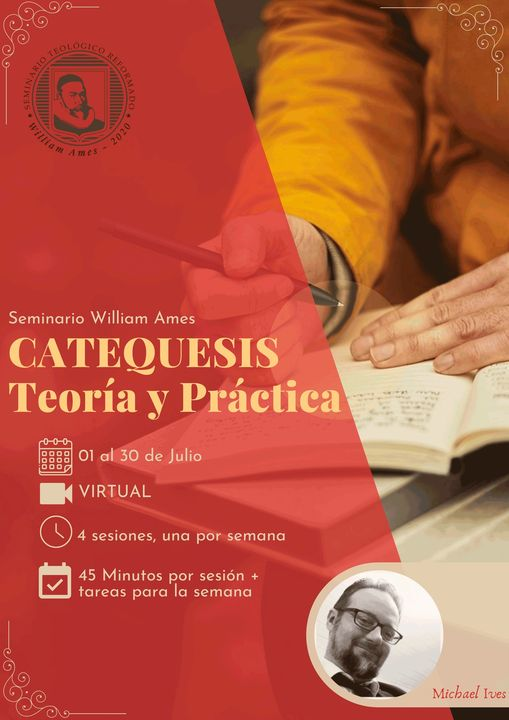FAMILY CATECHISING.
[From the United Presbyterian Magazine, Scotland, 1851.]
Of all the periods of human life, youth is the most favourable for religious impression. At first the judgment, though weak, is not pre-occupied; the heart, though depraved, is not yet hardened; and the conscience, though evil, is not yet seared as with a hot iron. Then, like the young sapling, the mind will take any bend you are pleased to give it. But when it has long been inured to sin, it  becomes stubborn as the sturdy tree that resists our pressure. We are told, on the best authority, it is as unlikely for one to do good who has been accustomed to do evil, as for the Ethiopian to change his skin, or the leopard his spots. Hence it is that so little can be done with the aged, and many think that few are converted after their twentieth year. It is true we must not limit the Holy One of Israel, and we know he can save even at the eleventh hour. But though a man may be born again when he is old, few, we fear, are changed at this time of life, and most of the aged who are coming to the grave like a shock of corn in its season, are those of whom God says, “I remember the kindness of thy youth.”
becomes stubborn as the sturdy tree that resists our pressure. We are told, on the best authority, it is as unlikely for one to do good who has been accustomed to do evil, as for the Ethiopian to change his skin, or the leopard his spots. Hence it is that so little can be done with the aged, and many think that few are converted after their twentieth year. It is true we must not limit the Holy One of Israel, and we know he can save even at the eleventh hour. But though a man may be born again when he is old, few, we fear, are changed at this time of life, and most of the aged who are coming to the grave like a shock of corn in its season, are those of whom God says, “I remember the kindness of thy youth.”
Since these things are so, can too much attention be paid to the training of the young? And should not every expedient be resorted to for improving the precious season of youth? In what follows, we intend to confine our remarks to one branch of the subject—family catechising. Of the importance of this department of parental duty, we cannot form too high an estimate. A family thus instructed, becomes a little nursery for the church and for heaven. The advantages of the practice have been seen in the lives and in the deaths of multitudes, and yet the day of judgment alone can reveal them fully.
But this practice, so invaluable to the young, has sadly declined in these degenerate days. The time has been, when no head of a family, who pretended to the name of a Christian would have dared to neglect it; but, as with family worship, what was once the rule has, we fear, become the exception. Nay, there is too much reason to doubt, that rare as is the worship of the family, the family catechising is still more rare; and some who observe the former duty have no relish for the latter. The chief cause of this is, no doubt, the decline of vital religion; but there are particular circumstances at the present day, which cannot be held as evincing such a decline, and yet have had their influence in producing the result we are deploring. Since Sabbath-schools have become so numerous, many parents think the work of family catechising is taken out of their hands. Now this is a great mistake. Sabbath-schools are a blessing, and a great blessing, to the country. But they are at the best but a remedy for a prevalent disease, and if every father could, and would, instruct his own household, Sabbath-schools would be quite uncalled for. No Christian parent is at liberty to devolve on a proxy the religious training of his offspring. And what instruction can be compared to that of a father? The school teacher may be very kind, and deeply concerned for the salvation of his pupils. But the child knows that his parent has far more interest in him than any stranger can have; and if the lessons of the school are not seconded by home tuition, they will in general be in vain. The neglect of this duty we believe to be one great reason of a fact which all Christians deplore, that while Sabbath-schools were never more numerous, juvenile wickedness was never more prevalent.
The frequency of preaching on the Sabbath evenings, especially in towns, may be another cause which has led to this evil. These sermons are extensively placarded and earnestly pressed on attention. The names of the preachers and their particular subjects are diligently advertised and intimated from every pulpit, as if it were some performance where men go to be entertained. Parents think they are well employed when they are hearing the word; and, as this is felt to be much easier than doing their more appropriate work at home, it is often preferred. Now, no head of a family should ever think, in ordinary circumstances, of going to these evening discourses. He is the priest in his own household, and his work at home is far more important than hearing the most popular preacher, on the most exciting theme he can bring before them.
The neglect of the good old way has been most disastrous. It is owing to this that such ignorance now prevails among the members of churches, and that the attainments of most professors are so very circumscribed. None who examine candidates for communion, or parents who are seeking baptism to their children, but must be pained at this. Many people can make but little of sermons, as preachers cannot be always dwelling on first principles; and as church examinations, either from the neglect of the pastor, or the pride of the people, are now almost entirely obsolote, unless the examination be practised in the family, ignorance must increase. And is it not owing to the same neglect that the grossest errors and wildest views on religious subjects are so rampant in the present day? Though the age be distinguished for shrewdness and acuteness in detecting flaws in science and literature, what monstrous opinions are entertained on religion!
Now, if in early life a systematic view of Christian doctrine were obtained, and digested and stored in the memory, the analogy of faith would be seen; the bearing of one doctrine on another would be apparent, and the pernicious dogmas, which gain assent so easily, would be at once rejected. In times of change like the present, when a respect for all that is sacred is sneered at by many as weakness and superstition, when the march of intellect, as they call it, is the pretext for so much change, and when all the foundations have gone out of their course, how important for the young especially to be rooted and grounded in the truth, that they may not be the dupes of every impostor, and be tossed about by every wind of doctrine!
In catechising a family, much will depend on the mode of procedure. To be efficient, it must be done frequently, seriously, intelligently, affectionately, attractively, and prayerfully.
It must be done frequently. Not at rare intervals, as before a communion, or when about to ask admission into the church, or when the visit of the pastor is expected. It must be very regular, and often repeated. For many years it was the custom to require an answer to a question every morning, and the greater part of Saturday was devoted to a revisal of the Catechism. But in this age of bustle and business, when even the day of God is encroached on, and there is time for everything but religion, such important seasons may not be convenient. Yet once in the week is surely not too often, and the evening of the Sabbath may be employed by all.
It must be done seriously,—not like some secular exercise, but as a work involving eternal interests. The subjects of examination are all of the most solemn and tremendous moment. And yet how often are the questions repeated with scarcely a solemn sound, and by a thoughtless tongue! Now this is not only hateful to God, but hurtful to the young. On such occasions all levity must be banished from the mind. They must be taught, when examined, that they have now to do with God, and that the place they occupy is like the “holy ground.”
It must be done intelligently; without this it will be labour in vain. Many have the form of sound words to which they can attach no meaning. They can repeat the questions with the greatest accuracy; but if you vary the language and ask what is meant by the thing expressed, there is no reply but the stare of ignorance. In this matter an improvement has taken place in recent editions of the Catechism. But still there is need for more explanation, that milk may be given to babes as well as meat to the stronger man.
It must be done affectionately, in the spirit of the father when he said, “O my son, if thine heart be wise my heart shall rejoice, even mine;” or of the mother who, leaning over the darling of her heart, exclaims, “O my son, and the son of my womb, and the son of my vows, and the son of my prayers.” The young must be drawn with the cords of love as the bands of a man. We cannot compel them to be religious. We may force them to read the Bible, and to repeat the questions, but we cannot compel them to love the Redeemer. In conducting this duty, the father must try to convince his child that he loves him as his own soul, and travails as in birth that Christ may be formed in his heart.
It must be done attractively,—not in a scolding, scowling manner, which would discourage children, and beget an aversion to the exercise; not as a task or piece of drudgery, so many questions inflicted as a kind of punishment. Unless the duty is made a delight, it will be little relished. The pious Philip Henry, as his son tells us, made the work of catechising so delightful to himself and his household, that he would sometimes say, at its close on the Sabbath evening, “Well, if this is not heaven, it must be the gate to it.”
And it must be done prayerfully. The parent who knows anything of true religion, is well aware that all his efforts will be useless without the Spirit of God. He may succeed in imparting theoretical knowledge; his child may be able to answer with promptitude and precision every question he is pleased to put to him; but without the grace of God, it is all like the sounding brass or the tinkling cymbal. The knowledge which is all intellectual may exist in the memory or the head, but it has no communication with the heart. Polish the marble as you please, it may display its spots and its veins, but it is marble still. No father can convert his son. Flesh and blood cannot do this; none but the Father in heaven. While, therefore, the parent questions, he must also pray; and while in the morning he sows the seed, he must look up for the early and the latter rains.
Were the exercise so conducted, might we not expect the most happy results? We know it is corruption and not grace that runs in the blood; and that many a pious father has had a wicked Absalom. But this is the exception and not the rule, and for such exceptions reasons may often be assigned, as in the case of David and Eli. Manasseh had a good father who would take care to instruct him in the things of God; and yet for a while he gave no evidence of profiting from his pious education. But see him caught among the thorns; carried captive to Babylon; lying in the dungeon, and there making supplication to the God of his father. It was his early impressions which were then revived. It was the seed sown into his mind when a child, that then sprung up and produced such a blessed harvest. And such cases are by no means rare. Parents may sometimes think they have laboured in vain. Their instructions may be buried long under the clods of corruption, but their words may be remembered when they are sleeping in the dust, and when their souls are in heaven. They may have occasion to say on hearing of the conversion of their poor prodigal, “It is meet to make merry, and be glad, for this my son was dead, and is alive again; he was lost and is found.”
If a parent, then, is reading these lines, we would say—for your own sake, for your children’s sake, and for the sake of the Lord Jesus, early instruct your offspring in the things of God. If your children perish through neglect of this, how can you meet them in the other world? “O father! O mother!” they might say, “if you had taught me the Catechism, if you had taken pains to instruct me in the things that belong to my peace, I might not have come to this place of torment. You took care, indeed, to cultivate my mind, and refine my manners; you sent me to every school but the school of Christ; you were careful that I should learn everything but the way of salvation. You often examined me on questions of science, but you had no anxiety to know my attainments in religion. You were proud when you saw me excelling others in branches of literature, but you thought no shame though you saw me ignorant of religion as the wild ass’s colt. The things that belonged to my peace you hid from mine eyes, and now I cannot but curse you for ever as the cause of my misery.”
But O, how different the meeting when by instructing your children in religion you have not only kept them from error, but become the means of their eternal salvation! Then how will they hail you, as, under God, the parents not of their first only, but of their second birth! And how transported will you be when called to account for your charge, you can say, Lord, here are we, and the children thou hast given to us—given to us first by nature, and then by grace! Happy family in heaven! Here you enjoyed your domestic gatherings, but they were soon over. But now your Sabbath’s sun never goes down—your meetings never break up! The Catechism is left behind you, and also the Bible, for now you know even as you are known. But being pious and happy in your lives, in your deaths you are not divided; for they who are a family in Christ are for ever with each other and for ever with the Lord!
Read Full Post »



 delights him as by way of exercise upon himself, and by way of preaching to himself, for the advancing of his own mortification; for in preaching to others, he forgets not himself, but is first a sermon to himself, and then to others; growing with the growth of his parish.
delights him as by way of exercise upon himself, and by way of preaching to himself, for the advancing of his own mortification; for in preaching to others, he forgets not himself, but is first a sermon to himself, and then to others; growing with the growth of his parish. Thomas Chalmers (1780-1847) sharing about how the Tron church Sabbath school leadership worked through disciplinary issues with their sometimes rowdy students. Insightful and amusing!
Thomas Chalmers (1780-1847) sharing about how the Tron church Sabbath school leadership worked through disciplinary issues with their sometimes rowdy students. Insightful and amusing! “The Assembly, considering that the long-waited-for fruits of the Gospel, so mercifully planted and preserved in this land, and the reformation of ourselves and families, so solemnly vowed to God of late in our Covenant, cannot take effect except the knowledge and worship of God be caried from the pulpit to every family within each parish, hath, therefore, appointed that every minister, besides his paines on the Lord’s day, shall have weekly catechising of some part of the paroch, and not altogether cast over the examination of the people till a little before the communion. Also, that in every familie the worship of God be erected where it is not both morning and evening, and that the children and servants be catechised at home by the masters of the families, whereof account shall be taken by the minister and elders assisting him in the visitation of every family; and, lest they fail, that visitation of the severall kirks be seriously followed by every Presbyterie, for this end among others. The execution and successe whereof, being tried by the Synods, let it be represented to the next Generall Assembly.
“The Assembly, considering that the long-waited-for fruits of the Gospel, so mercifully planted and preserved in this land, and the reformation of ourselves and families, so solemnly vowed to God of late in our Covenant, cannot take effect except the knowledge and worship of God be caried from the pulpit to every family within each parish, hath, therefore, appointed that every minister, besides his paines on the Lord’s day, shall have weekly catechising of some part of the paroch, and not altogether cast over the examination of the people till a little before the communion. Also, that in every familie the worship of God be erected where it is not both morning and evening, and that the children and servants be catechised at home by the masters of the families, whereof account shall be taken by the minister and elders assisting him in the visitation of every family; and, lest they fail, that visitation of the severall kirks be seriously followed by every Presbyterie, for this end among others. The execution and successe whereof, being tried by the Synods, let it be represented to the next Generall Assembly.